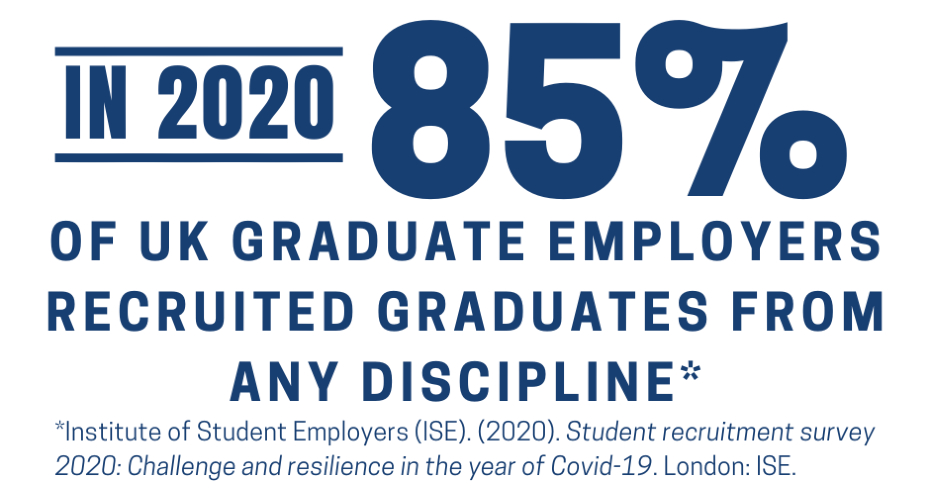
Giulia Luerti, Marine Vertebrate Ecology and Conservation (2022)
'Networking and contacting people whose research you are interested in is always very useful.'
Marine Bioacoustics Researcher, MORIGENOS – Slovenian Marine Mammal Society


Christopher Wenham, Marine Biology (2021)
'Try as many things as possible, you will gain valuable contacts, knowledge, and insight to individuals’ careers.'
Marine Planning Reform Lead Advisor, Natural England
What can I do with a degree in Marine Sciences?
The below offers a selection of the destinations University of Exeter graduates from Marine Science have gone on to. The information below is not exhaustive, however it does highlight the range of job and further study options available to you after your studies.
If you would like to learn more about any of the jobs listed below you may wish to browse the job profiles on the Prospects website.
Careers with a degree in Marine Sciences
Recent Exeter Marine Sciences graduates have entered a wide range of careers. Some recent examples include:* (note most popular roles highlighted in bold)
- Client services coordinator
- Data Architect
- Ecological Consultant
- Education and Outreach Officer
- Fisheries Officer
- GIS Team Leader
- Graduate Flow and EDM Scientist
- Insights Analyst
- Lab Technician
- Marine Biologist
- Marine Conservationist
- Marine Ecologist
- Marine Planner
- Monitoring Technician
- Policy Manager
- Science Teacher
- Scientific Officer
- Zoologist
Remember…
Many employers accept applications from graduates with any degree subject, so don't restrict your thinking to the jobs listed above. Use Prospects A-Z database of occupational profiles to find out more about the above roles.
Other resources:
University of Exeter
- University of Exeter Employment sector pages
- University of Exeter Alumni Profiles database to explore what Geography graduates do after their degree
- University of Exeter Ecology and Conservation research
- LinkedIn Exeter Marine Science alumni tool (you will need to be logged in to LinkedIn to access this functionality)
- What next after a Biosciences Degree – virtual alumni panel event October 2023
UK resources
- British Ecological Society
- Freshwater Biological Association
- Graduate Outcomes Data to do a deep dive into the data on what Marine Science graduates do after their degree
- Institute of Marine Engineering, Science & Technology (IMarEST)
- Marine Biological Association (MBA) | Marine Life Information Network (MarLIN)
- Marine Conservation Society (MCSUK)
- Marine Technology Society (MTS)
- Royal Society of Biology (RSB)
- Sea Watch Foundation
International resources
- European Marine Board (EMB)
- Institute of Fisheries Management (IFM)
- International Association for Biological Oceanography (IABO)
- International Maritime Organization (IMO)
- Marine Careers
- National Oceanic and Atmospheric Administration (NOAA) – attached to US Dept. of Commerce
- The MarineBio Conservation Society (MarineBio)
- United Nations (UN) Division for Ocean Affairs and the Law of the Sea
- Wise Oceans
* Aggregated Data taken from aggregating the responses from full-time, first degree, UK domiciled students who completed Graduate outcomes from 2017/18 to 2021/22 Graduate Outcomes surveys
Employers of Exeter alumni with a degree in Marine Science
Recent Exeter Marine Sciences graduates have entered a wide range of careers. Some recent examples include (most popular careers in bold):*
- Archelon
- Civil Service
- Cornwall College Group
- Cornwall Wildlife Trust
- FDM UK
- FiveRivers Environmental Management & Contracting Solutions
- International Pole and Line Foundation
- Marine Management Organisation attached to DEFRA
- Natural England / Research Development UK
- Naturhistoriska Riksmuseet (The Swedish Museum of Natural History)
- NielsenIQ
- Ocean Ecology
- Oil Spill Response
- Pelagia
- Reef Experience
- Sea Trust Wales
- Thames Water
- The Rivers Trust
- University of Exeter
- Viking Cruises
Other resources
- LinkedIn Exeter marine sciences alumni tool (you will need to be logged in to LinkedIn to access this functionality)
- University of Exeter alumni profiles of graduates who studies marine sciences.
* Aggregated Data taken from aggregating the responses from full-time, first degree, UK domiciled students who completed Graduate outcomes from 2017/18 to 2021/22 Graduate Outcomes surveys.
Skills
An Exeter Marine Sciences degree will arm you with some great employability skills including:
Soft/Transferable Skills
- Adaptability: being flexible and resilient to work in all kinds of environments, including fieldwork.
- Communication: effectively and accurately conveying scientific findings to both technical and non-technical audiences, both orally and in writing.
- Critical thinking: analysing data and information to draw informed conclusions from scientific, ethical, and philosophical perspectives.
- Teamwork: collaborating with diverse individuals to achieve common goals in project groups and field trips.
- Time management: efficiently self-managing tasks and deadlines.
Technical/Specialist Skills
- Data analysis: using statistical tools and software to interpret and analyse marine data.
- Fieldwork: collecting samples and data in marine environments in a responsible, safe, and ethical manner.
- IT and computer skills: using spreadsheets (e.g., Microsoft Excel, Google Sheets), statistical software (e.g., R, SPSS, MATLAB), word processing (e.g., Microsoft Word, Google Docs), presentation packages (e.g., Microsoft PowerPoint, Google Slides) to manage, process, analyse, and communicate data and findings, Geographic Information Systems (GIS) (e.g. ArcGIS, QGIS), Remote sensing software (e.g. ENVI, Erdas Imagine), oceanographic modelling software (e.g. ROMS, MIKE21), molecular biology software (e.g. ClustalW, MEGA), marine database software (e.g. e.g. Ocean Data View), ecological modelling software (e.g. Ecopath), and image analysis software (e.g. ImageJ).
- Laboratory techniques: performing laboratory experiments and analyses.
- Research methods: designing and conducting scientific experiments and surveys.
Further Study
Around 24 % of Marine Sciences graduates go on to pursue further study within 15 months of completing their undergraduate degree. Some recent progression routes include:
- Aquatic Conservation, Ecology and Restoration
- MSc Marine Management
- MRes - Animal Behaviour
- MRes in Ecology and Evolution
- MRes Ocean Science
- MSc Animal Behaviour
- MSC by Research in Biological Sciences
- MSC Conservation and Biodiversity
- MSc Evolutionary and Behavioural Ecology
- MSC Global Sustainability Solutions
- MSc Marine Environmental Management
- MSc Marine Vertebrate Ecology and Conservation
- MSc Oceanography
- MSc Surveying and Land/Environmental Management
- PGCE Secondary Science /Biology
- PhD Biosciences
- PhD Ocean Sciences
Sample of some further study progression options at University of Exeter.
- MSc Conservation and Biodiversity
- MSc Evolutionary and Behavioural Ecology
- MSc Marine Environmental Management
- MSc Marine Vertebrate Ecology and Conservation
Useful resources
- Find a Masters
- Masters Compare
- Masters Portal
- University of Exeter Career Zone help with applying for postgraduate study
- University of Exeter PG Study
